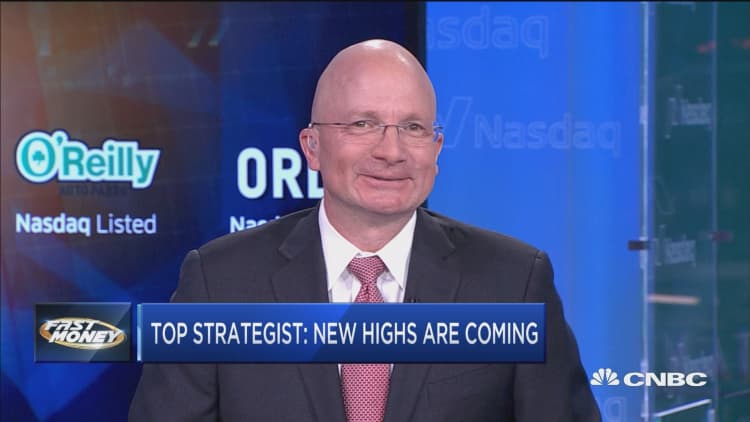
Wall Street bull Tony Dwyer is betting the stock market will go higher this year — but he wouldn't buy just yet.
The Canaccord Genuity chief market strategist is predicting the S&P 500 will end the year at 2,950, about 9 percent higher than Thursday's close.
However, he expects stocks to drop around 3 percent first — and that will be the buying opportunity.
"If you don't expect that the market can correct, you get scared when it does," Dwyer said Thursday on CNBC's "Fast Money."
His primary reason for the 2019 rally: Federal Reserve monetary policy. The central bank has been gradually raising interest rates and drawing down its balance sheet. However, in January it opted not to raise rates and indicated it would take a "patient" approach going forward.
Dwyer thinks the Fed may actually reverse course, and that will push stocks higher.
"You've got to have a Fed rate cut sometime this year. You are getting weak data in Germany. You are getting weak data in China," he said.
Former Fed Chair Janet Yellen told CNBC on Wednesday that the central bank's next move could be an interest rate cut if weakening global growth spills into the United States.
U.S. stocks are up sharply for the year, thanks to the best January performance in three decades. On Thursday, equities fell on news that it was "highly unlikely" that President Donald Trump and Chinese President Xi Jinping will meet before the March trade-deal deadline.
— CNBC's Bree Kelly, Jeff Cox and Fred Imbert contributed to this report.


